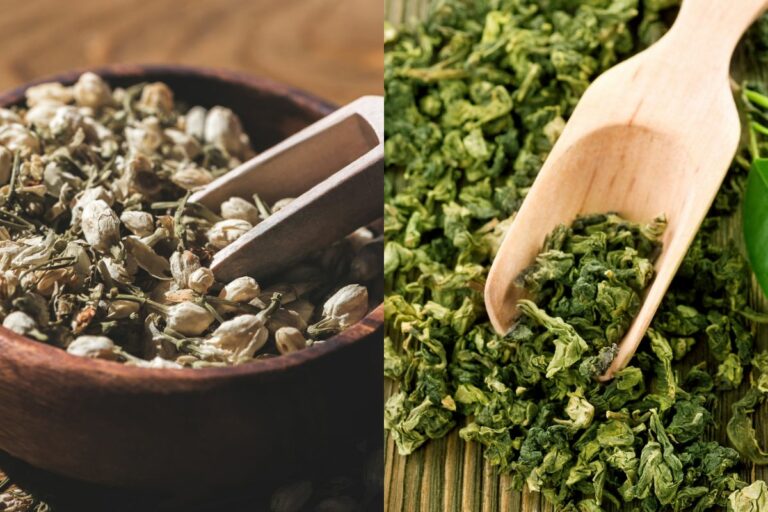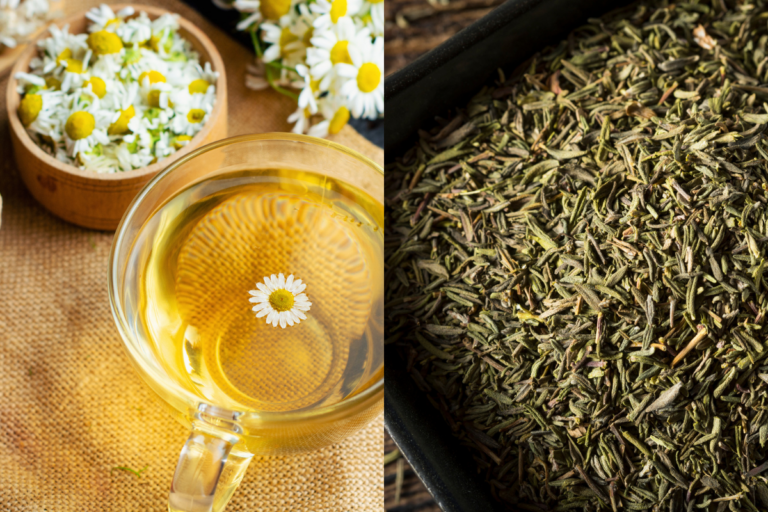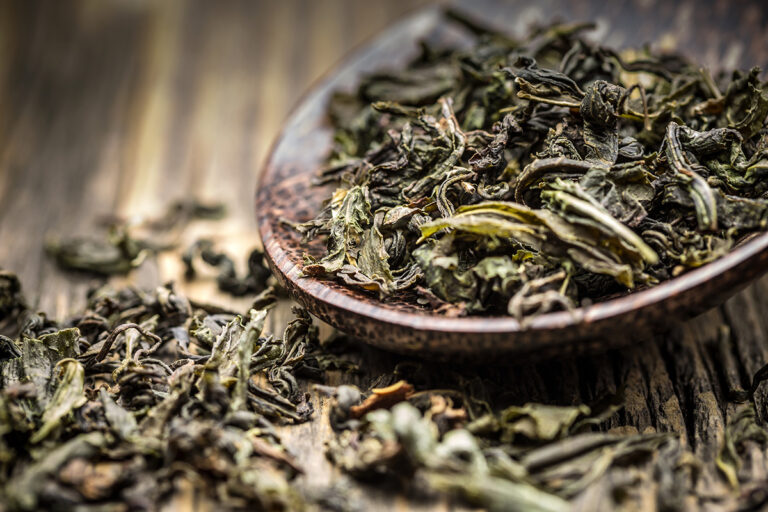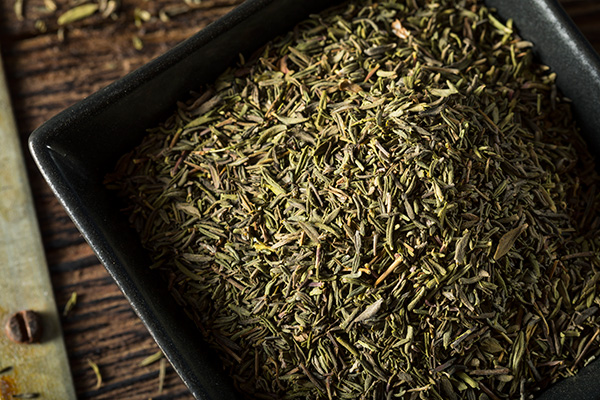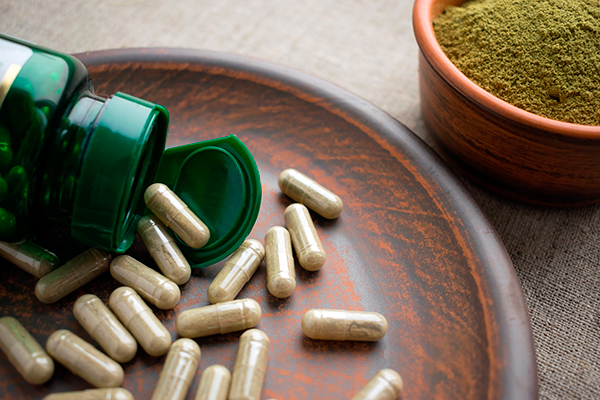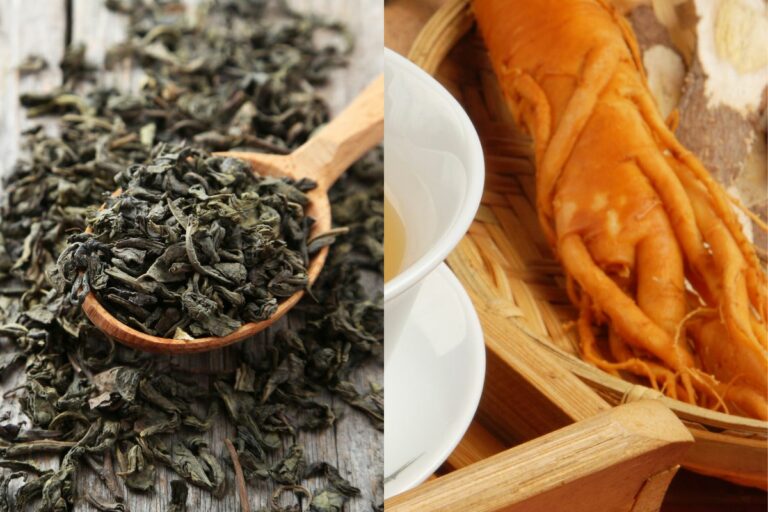Can Cats Drink Green Tea?
As a cat owner, you continually explore new methods to ensure your feline companion remains healthy and content.
As green tea gains popularity for its numerous health benefits, you may wonder whether it’s safe to let your cat enjoy this beverage too.
In this piece, we’ll explore the positive aspects and potential disadvantages of cats drinking green tea and explain how to serve it to them appropriately.
But first things first. Is green tea safe for cats? Yes, green tea is safe for cats when provided in minimal, watered-down amounts, and decaffeinated green tea is recommended to lessen the risk of caffeine-related issues.
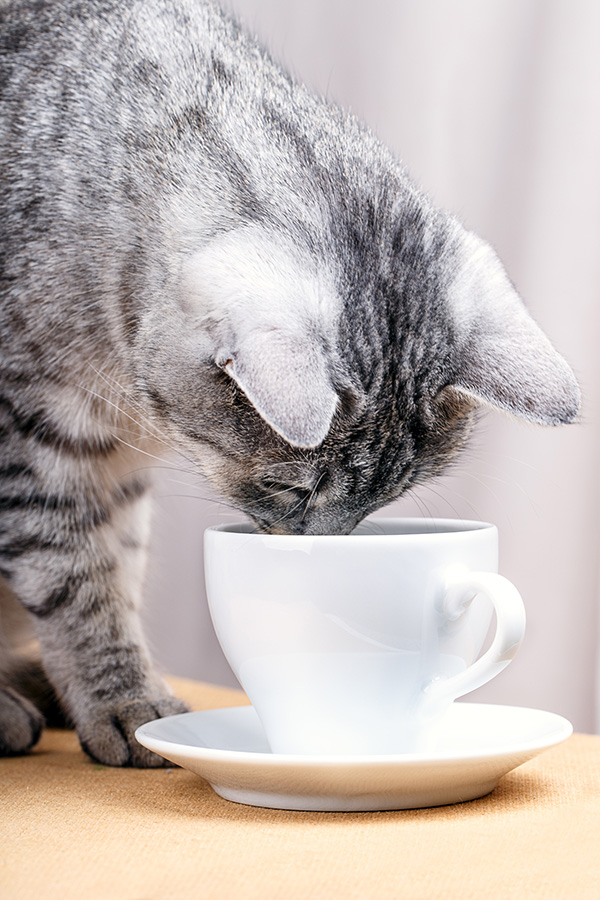
How Does Green Tea Benefit My Cat?
Green tea is filled with antioxidants, mainly catechins, which are reputed to deliver an array of health benefits for humans. For cats, these antioxidants can help:
- Boost their immune system: Green tea antioxidants can help defend your cat’s body against damage from free radicals, thereby strengthening its immune system (1).
- Aid in weight management: Green tea can potentially increase metabolism and help with weight management, which is beneficial for cats that struggle with obesity (2).
- Improve dental health: Green tea has antimicrobial properties that can help prevent plaque formation and reduce bad breath in cats (3).
- Promote healthy skin and fur: The antioxidants in green tea can help reduce inflammation and support skin and fur health in cats.
What Are the Cons of Drinking Green Tea for My Cat?
While green tea can offer some health benefits for cats, the primary concern is the presence of caffeine. Cats are more susceptible to caffeine than humans, and excessive consumption may result in harmful effects, including:
- Hyperactivity: Being a stimulant, caffeine may result in elevated restlessness, agitation, and hyperactivity among cats.
- Elevated heart rate and blood pressure: Excessive caffeine intake can result in a faster heart rate and higher blood pressure in cats, adding unneeded strain to their cardiovascular system.
- Rapid breathing and panting: Excessive caffeine can result in rapid breathing or panting in cats, causing anxiety for both the feline and the owner.
- Tremors and seizures: In severe cases of caffeine overdose, cats may exhibit muscle tremors or even experience seizures, posing a life-threatening risk if not treated quickly.
- Gastrointestinal upset: Caffeine may upset the digestive system, causing vomiting or diarrhea in cats.
It is crucial to closely monitor your cat’s reaction to green tea and limit its intake to avoid the adverse effects of caffeine.
Always consult your vet before introducing new food or drinks to your cat’s diet.
How Much Should My Cat Drink?
As mentioned earlier, cats are more sensitive to caffeine than humans, so it’s essential to keep their green tea consumption minimal. A small amount of green tea, such as a teaspoon or two mixed into their water, should be safe for most cats.
What Type of Green Tea Is Best for My Cat?
When selecting a green tea for your cat, look for high-quality, organic products with no added sugars or artificial flavorings. Decaffeinated green tea presents the safest option, eliminating the potential for caffeine poisoning.
Here are a few high-quality organic green teas, including some decaffeinated options.
How to Brew and Serve Tea to Your Cat
- Brew the green tea: Steep the tea bag or loose-leaf tea in hot water (around 160-170°F) for 2-3 minutes. Oversteeping can result in a bitter taste and higher levels of tannins.
- Cool the tea: Wait until it reaches room temperature before offering it to your cat.
- Dilute the tea: As cats are sensitive to caffeine, diluting the green tea before serving it is essential. Mix a teaspoon or two of the brewed tea with your cat’s water.
- Monitor your cat’s reaction: Keep an eye on your cat while they drink the green tea-infused water. Stop using it and consult your veterinarian if you observe any adverse reactions.
Final Thoughts
While green tea can offer some health benefits for your cat, it’s crucial to proceed cautiously. Start by serving a small amount of decaffeinated, diluted green tea, and closely monitor your cat’s reaction.
Always seek advice from your veterinarian before incorporating any new food or beverage into your cat’s dietary plan.
FAQ
Can Cats Have Matcha?
Matcha is a type of green tea that comes in a powdered form. It contains a higher concentration of caffeine than regular green tea, making it potentially more harmful to cats.
Due to the increased risk of caffeine toxicity, avoiding giving matcha to your cat is best.
Can Cats Have Honey?
Despite being a natural sweetener that’s safe for humans, honey is not advised for cats. Cats lack the enzymes to properly digest honey, potentially resulting in gastrointestinal problems like diarrhea or vomiting.
Moreover, honey contains a high sugar content, which may lead to obesity and dental issues in cats.
It’s best to avoid giving your cat honey and stick to feline-friendly treats and supplements for their nutritional needs.

